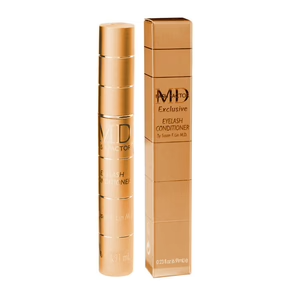Last Updated on March 10, 2024 by admin
If you’re not already a big fan of coriander, you’re probably missing out on a lot of health benefits it can give you. From fighting inflammation to treating urinary tract infections, there are lots of health benefits that you’ll want to consider when you’re making the switch.
Lowers bad cholesterol
Coriander is an herb that can be used to lower bad cholesterol and raise good cholesterol. These benefits are due to the antioxidants that it contains.
Antioxidants prevent damage from free radicals in your body. They also fight inflammation. Oxidative stress is a key factor in cancer and arthritis. It is also associated with macular degeneration, Alzheimer’s disease, and heart disease.
Coriander leaves are rich in vitamins, minerals, and phytonutrients. These include potassium, magnesium, calcium, vitamin K, and manganese.
Coriander is also known to improve digestive function. Other uses of coriander include headache relief, treating yeast infections, and helping to regulate menstrual cycles.
The high levels of vitamin C found in coriander can help to maintain healthy skin and bones. Vitamin C helps the body to produce collagen, which is important in wound healing and keeps your skin firm.
It is also useful for people with diabetes. Studies have shown that coriander can help to reduce blood sugar.
Another benefit of coriander is that it can help to lower your risk of atherosclerosis. This is because a buildup of cholesterol in the blood vessels can impair the flow of blood.
If you are interested in lowering your bad cholesterol, you should consider adding a tablespoon of coriander to your daily diet. Using coriander can also be helpful in controlling high blood pressure.
Lowers blood sugar
Coriander lowers blood sugar and promotes heart health. It is also good for digestive health and brain health. It is a source of several important vitamins, including B-complex vitamins and folic acid.
Several coriander seeds are rich sources of vitamin C, calcium, iron, magnesium, and potassium. It contains a variety of antioxidants and antimicrobial agents. These antioxidants and antimicrobial agents are found to be effective against pathogens that cause infections.
A recent study suggests that coriander can help improve the lipid profile, oxidative stress parameters, and glucose metabolism in type 2 diabetic patients. It may also be beneficial for those who are prone to cardiovascular problems, such as hypertension and coronary heart disease.
Coriander is a food that is rich in calcium, which is essential for bone regeneration. Furthermore, it also contains an ample amount of vitamin K. Vitamin K helps to keep the blood clotting system healthy. Vitamin plays a vital role in immune function.
Some studies have also suggested that cilantro can reduce the risk of obesity and heart disease. However, further research is needed to confirm these positive results.
A recent study concluded that coriander offers protective benefits against lipids and toxin levels in the colon. Moreover, it was also found to be effective at reducing hyperglycemia in streptozotocin-treated mice.
Fights inflammation
Coriander (or cilantro) is a common spice that is highly potent in fighting inflammation. Its leaves are rich in antioxidants and vitamin K, which prevents the development of osteoporosis and heart disease. In addition, coriander can lower blood sugar levels and cholesterol.
Antioxidants are compounds that combat free radicals, which damage cells and cause diseases. These compounds are also known to protect the brain and prevent certain infections.
Aside from its antioxidant effects, coriander can also help your body fight urinary tract infections. Researchers have also found that coriander helps relieve painful symptoms associated with irritable bowel syndrome.
The anti-inflammatory and antioxidant effects of coriander are also believed to be helpful in curing nausea. However, it is important to avoid taking excessive amounts of coriander, because it can cause digestive problems.
Other benefits of coriander include its ability to fight foodborne illnesses. It is commonly used as a complementary medicine, which means it is used along with standard medical treatments. Some studies have shown that coriander can reduce the risk of contracting Salmonella, a bacteria that can lead to life-threatening food poisoning.
Treats urinary tract infections
If you suffer from urinary tract infections, then coriander is a great herb to use. This herb will relieve the burning sensation and other symptoms associated with an infection.
There are several factors that contribute to a urinary tract infection. One of the major factors is genetics. Another factor is activity. Symptoms of an infection include lower abdominal pain and cramping.
Coriander has a diuretic effect that helps eliminate excess water from the body. It also has antibacterial properties that prevent bacteria from growing in the urinary tract.
Adding ginger root to water can help in eliminating bacteria. Other herbs that are effective in treating UTIs include chamomile, parsley, and green tea.
Apple cider vinegar is a great preventative treatment. A 28-year-old woman developed a severe stomach ache, dehydration, and depression. She then developed a dark skin color and amenorrhea. In addition to this, she developed a dark and painful area on her lower abdomen.
Cinnamaldehyde, an essential oil found in cinnamon, has been shown to kill bacteria. However, it can cause severe side effects if you consume too much of it.
Improves your skin’s radiance
One of the best ways to improve your skin’s radiance is to make sure that you get a good night’s sleep. A good night’s rest boosts blood flow to your skin, thereby promoting healthy regeneration.
In addition to the moisturizer, consider a nutrient-rich serum. They are loaded with antioxidants and pure retinol, which can boost the radiance of your skin. It can also reduce the appearance of fine lines and wrinkles.
Lastly, don’t forget to drink plenty of water. Drinking water can hydrate your skin, but you should avoid hot or boiling water. Hot water can strip your complexion of moisture, and it can also dehydrate you, causing dry patches.
To see the most optimal results, it’s a good idea to consult with a dermatologist about your skincare needs. A cosmetic doctor can also recommend some home remedies for transforming dull skin into a glowing, healthy glow.
Choosing the right skincare products can be the deciding factor in how your skin looks and feels. If you’re not confident in your skincare routine, you should consider trying out a product from a reputable brand.



















